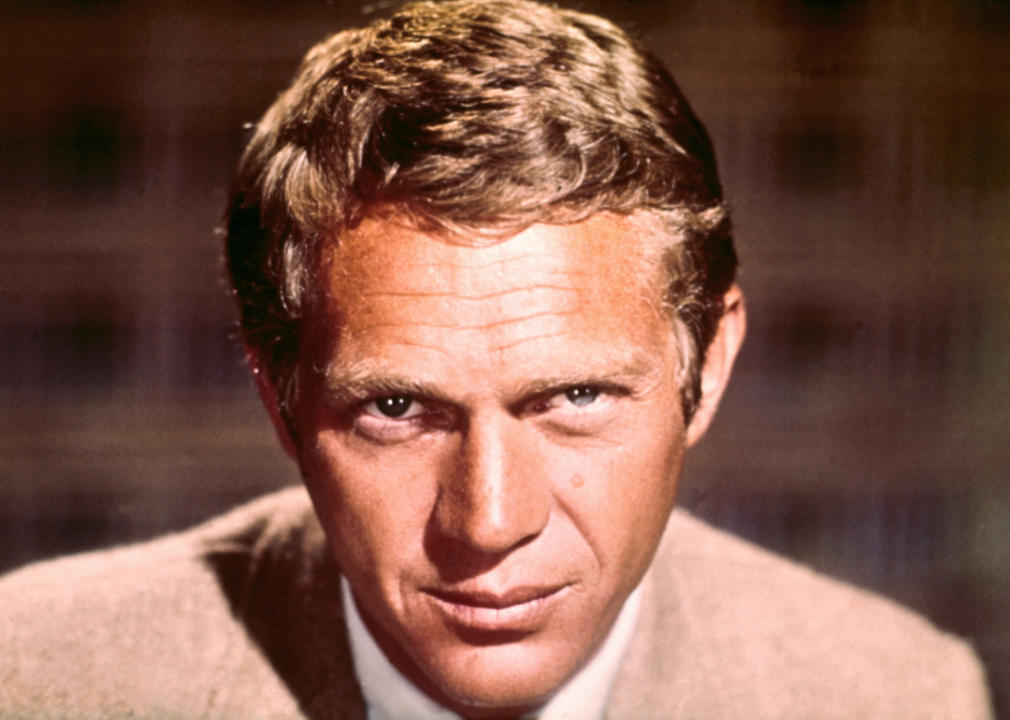Steve McQueen: The life story you may not know
Published 10:45 pm Thursday, March 17, 2022
Bettmann // Getty Images
Steve McQueen: The life story you may not know
Iconic actor, martial artist, and car and bike enthusiast Steve McQueen was a perfect fit for the counterculture era, rising up as a true embodiment of the antihero archetype.
McQueen’s seemingly effortless cool was underscored in films like “The Great Escape,” “The Cincinnati Kid,” “The Thomas Crown Affair,” and “Bullitt.” The actor introduced a new image for a Hollywood leading man: unconventional, rebellious, and ruggedly handsome.
The actor’s onscreen rebel persona matched who he was in real life. Born March 24, 1930, McQueen never quite escaped the damage of his volatile, unmoored childhood. He spent his adulthood ensconced in risky behavior and a life of excess, from fast vehicles and illicit substances to numerous, storied affairs. McQueen actor was known for outlandish demands on set, including losing a starring role in ″Butch Cassidy and the Sundance Kid″ to Robert Redford because McQueen wouldn’t sign on without having top billing over Paul Newman. He made complaints about lines and costumes and, several times, filming had to be delayed because McQueen was inebriated on narcotics or alcohol (or both). Other times, he turned down roles in films that stand today as masterpieces, such as “Apocalypse Now,” “Dirty Harry,” and “One Flew Over the Cuckoo’s Nest.”
McQueen also allegedly abused his wives and lovers. In her memoir “My Husband, My Friend,” McQueen’s first wife Neile Adams outlined persistent emotional and physical abuse. Further allegations suggest the same treatment of McQueen’s second wife, Ali MacGraw.
Early in his career, McQueen got his hands on Harley-Davidson and Triumph motorcycles. By the early 1950s, living in New York City and studying acting, McQueen began traveling to Long Island on the weekends to compete in motorcycle races. His winnings each week totaled around $100, more than $1,000 in today’s money.
McQueen’s enduring character is that of an unapologetically flawed man whose legacy stretches out across nearly three dozen films and countless television appearances. His signature style—often associated with Barbour jackets, Persol sunglasses, and TAG Heuer watches—and larger-than-life persona captivated audiences and influenced fans throughout the ’60s and ’70s and straight through to today. Keep reading for Stacker‘s curated list of 25 lesser-known facts about the iconic, complicated star.
You may also like: 30 notable celebrity endorsements
![]()
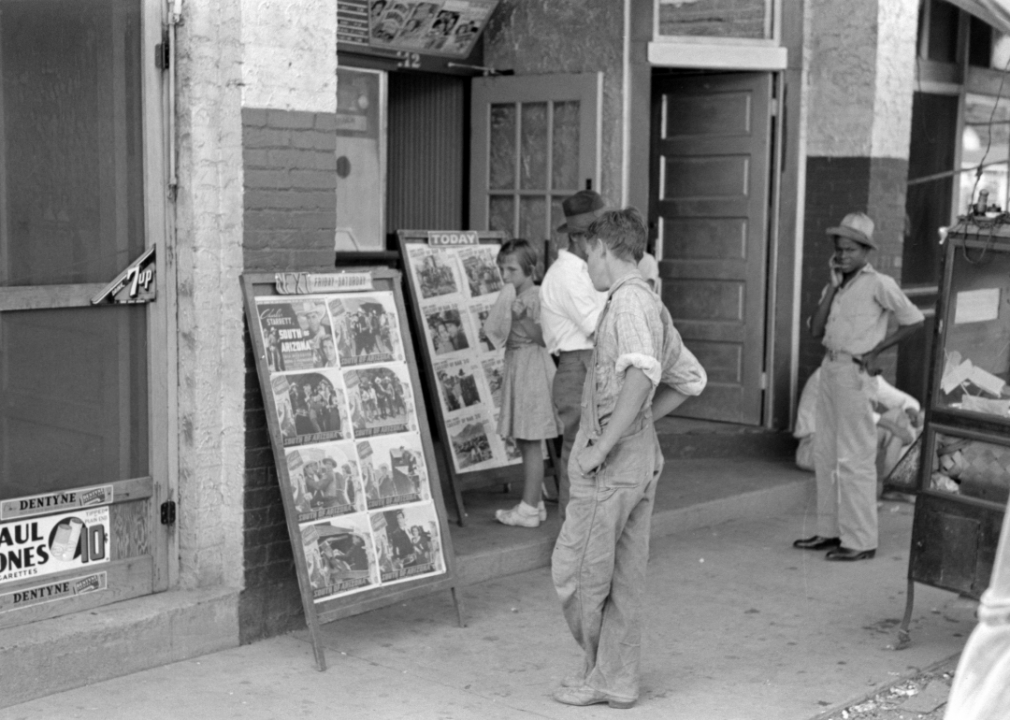
Photo12 // Getty Images
1930s: A hard-knocks upbringing
Steve McQueen was born in Indiana on March 24, 1930. His mother was a sex worker and his father a circus stuntman who left McQueen’s mom within six months after meeting her. Unable to cope with parenthood, by 1933 she left her young son with her parents in Missouri.
Reunited in 1938, mother and son moved back to Indiana with her new husband. McQueen was regularly beaten by his stepfather and by age 9 McQueen set out to live on the streets. His mother responded by sending him back to family in Missouri, only to ask for her son back when she’d married yet again and wanted to move the family to Los Angeles. There, McQueen faced familiar abuse by his mother’s new husband. After bouncing back and forth another time to Missouri, McQueen joined a gang in Los Angeles and, after getting caught stealing hubcaps and getting thrown down a flight of stairs by his stepfather, ended up in reformatory school.
During the 14 months he was enrolled at the California Junior Boys Republic at Chino, McQueen was put into solitary confinement five times. He later said he relied on those memories while acting in “the cooler” scenes in 1963’s “The Great Escape.”
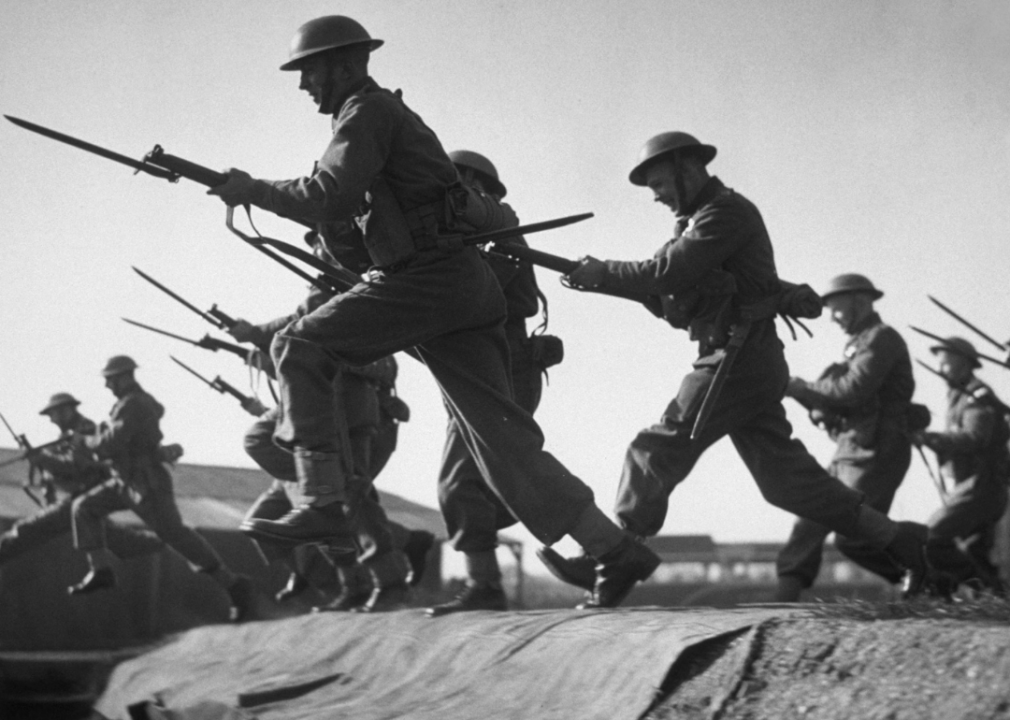
Topical Press Agency // Getty Images
1947: McQueen joins the Marine Corps
McQueen was 17 when he enlisted in the Marine Corps. It was there that he learned to use a number of weapons utilized in fight scenes throughout his filmography—including guns, knives, and his hands for street-fighting. During his service, he was promoted to Private First Class but demoted to private seven separate times for various offenses including using a weekend pass to meet up with a girlfriend for two weeks. During a training exercise in the Arctic, the ship hit a sandbank and threw a number of people into the water where many drowned. McQueen jumped in and rescued five Marines. He was honorably discharged in 1950.
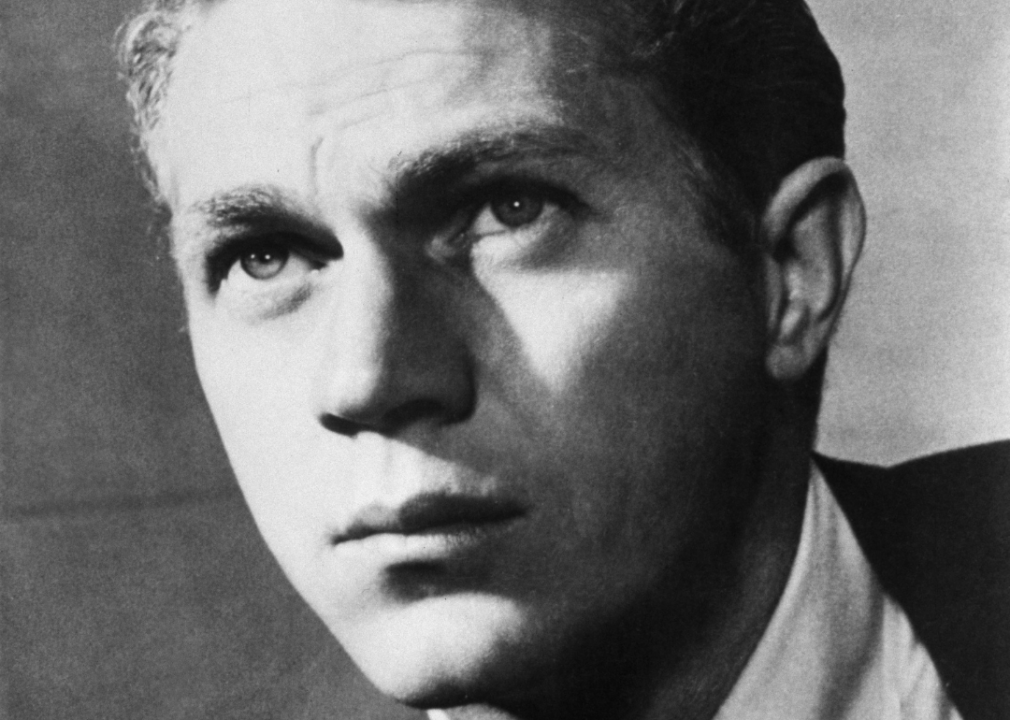
Sunset Boulevard // Getty Images
1950s: Criminal enterprises
After being discharged from the Marines, McQueen kept a number of odd jobs, including serving as a getaway driver for robbers, working as a pimp, and selling illegal handguns. He eventually decided to change tacks and headed to New York for acting school. He used money from the G.I. Bill to enroll at the famed Neighborhood Playhouse in 1951.
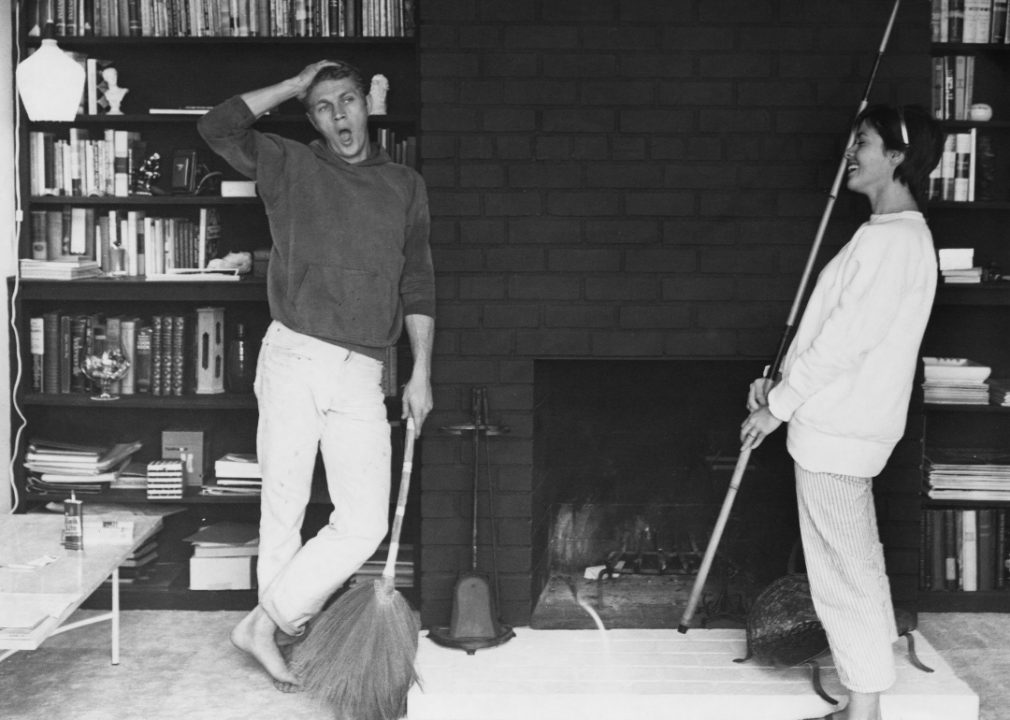
Archive Photos // Getty Images
1956: McQueen marries Neile Adams
Neile Adams, a Broadway dancer, married the then-struggling actor in 1956. She later wrote that their mutual, painful childhoods helped them to understand each other. Neile also said she was aware of McQueen’s drug problem very early on, and that McQueen demonstrated extreme jealousy that manifested at times as physical violence. Meanwhile, he was a known philanderer who carried on many affairs and flings.
The couple had two children together, Terry Leslie McQueen (1959–1998), and Chad McQueen (born in 1960). Neile filed for divorce in 1971.
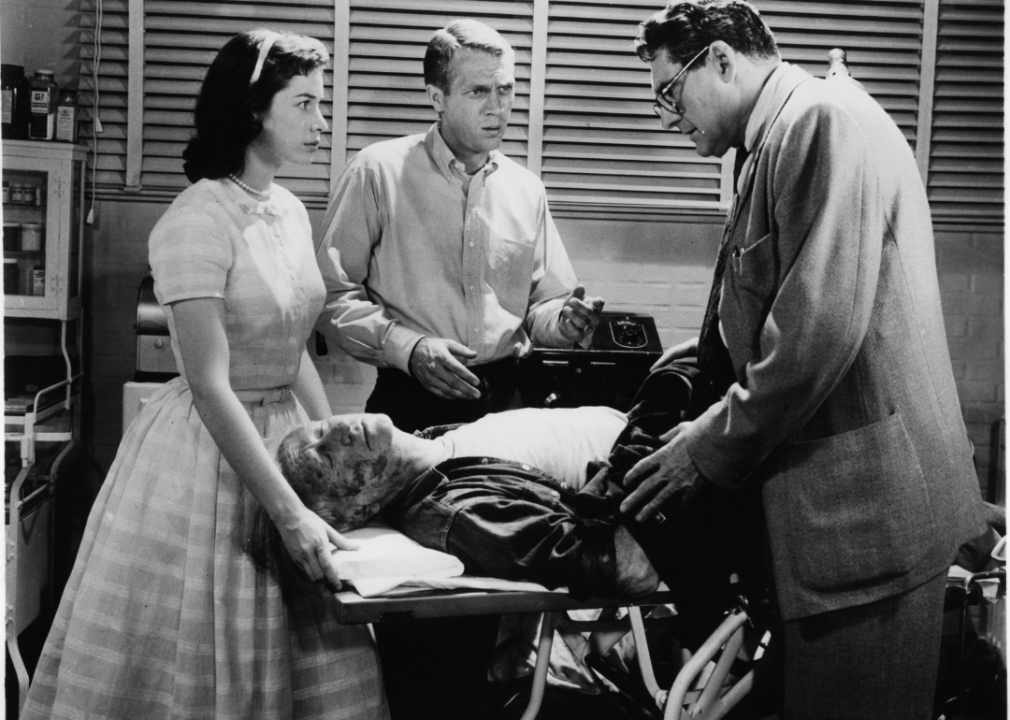
Paramount // Getty Images
1958: ‘The Blob’ breakthrough
McQueen’s acting career touched off in 1952 with a half-hour telephone short for Bell Telephone Company. The young actor was eager to take any roles he could get, and jumped at the opportunity to star in a campy horror flick. The movie turned out to be the surprise 1958 sci-fi hit thriller “The Blob.” Aneta Corsaut, who later co-starred on “The Andy Griffith Show” as Helen Crump, co-starred. McQueen earned $3,000 for his part in the film.
You may also like: 100 celebrities who grew up in small towns
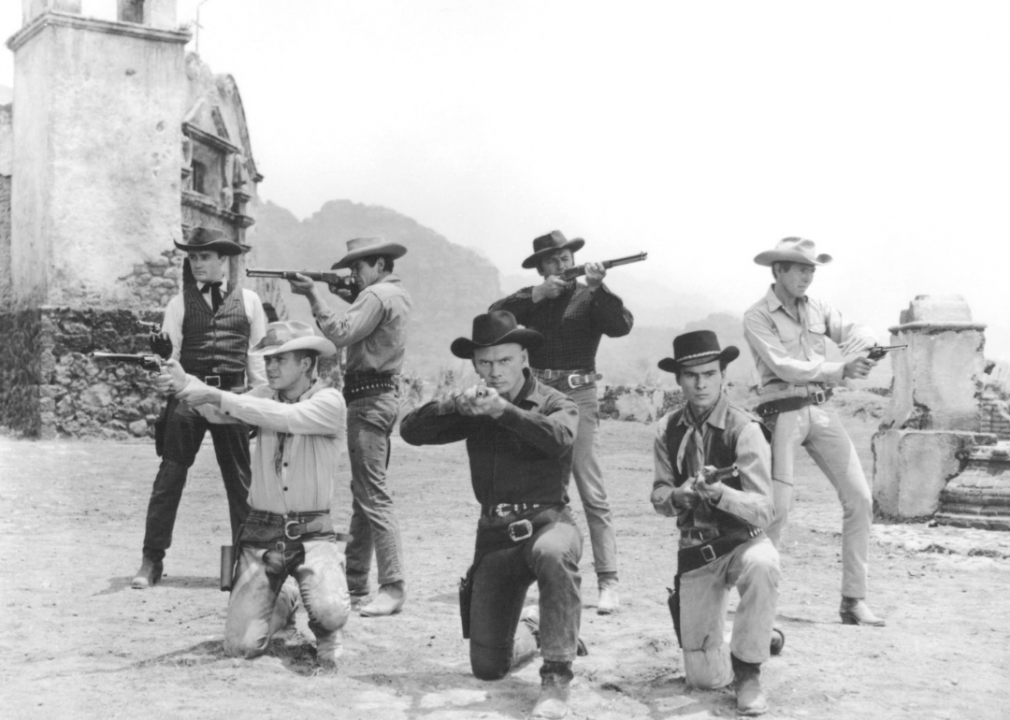
Silver Screen Collection // Getty Images
1960: Near-death experience at a Mexican brothel
While filming “The Magnificent Seven,” McQueen took his co-star Robert Vaughn to a Mexican brothel, where they imbibed numerous margaritas, stayed all night, and left without paying (McQueen was notorious for never carrying cash). Years later, Vaughn recounted the story and said he was sure the two were lucky to have escaped a beating if not death.
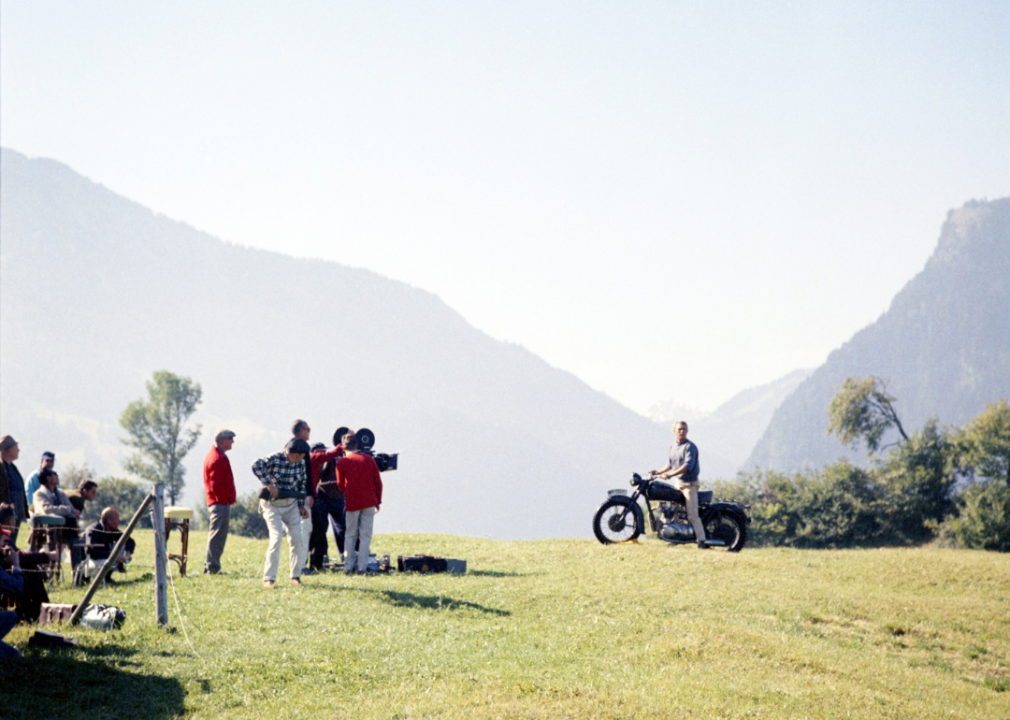
Silver Screen Collection // Getty Images
1963: Insurance concerns keep McQueen from famed ‘Great Escape’ bike jump
1963’s “The Great Escape” seamlessly incorporated McQueen’s cool antihero persona and acumen as a motorcyclist. But in what is widely considered the greatest motorcycle scene of any movie, the dramatic fence-jump was done by the actor’s mentor, bike-builder, and friend Bud Elkins. That’s because the studio was worried McQueen might hurt himself.
To pull off the stunt, Elkins employed a modification to the seat to protect his body during the 60-foot jump.
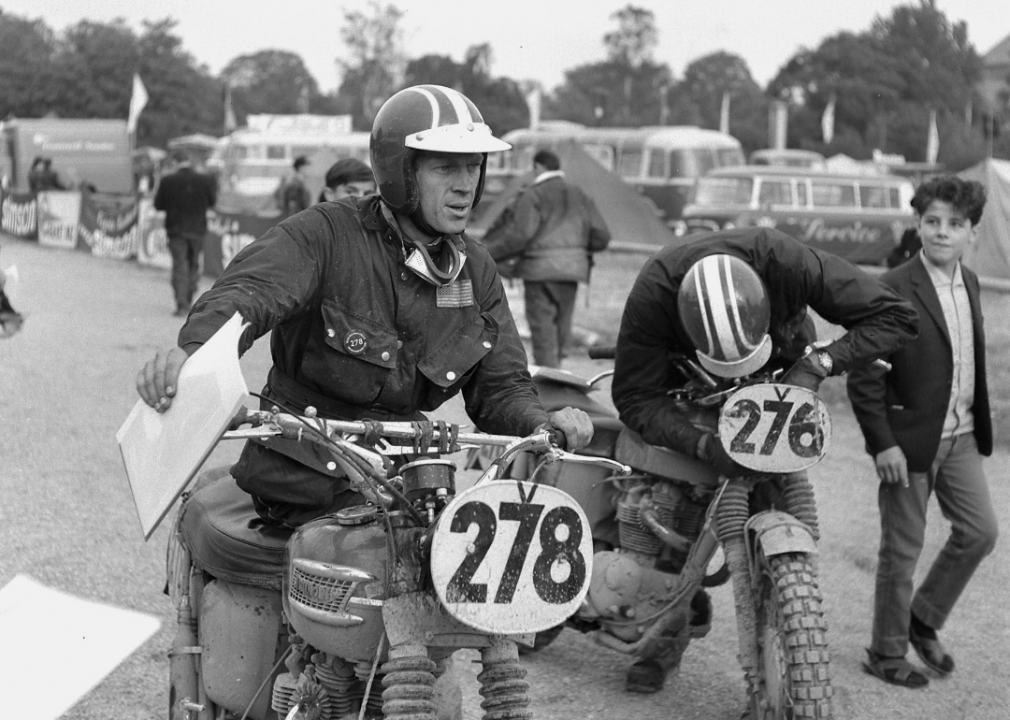
picture alliance // Getty Images
1964: International Six Day Trials
McQueen provided most of the funding required to form the first authentic Team USA at the International Six Day Trials (ISDT) in 1964, held in Erfurt, Germany, at the height of the Cold War. The team was composed of McQueen, Bud and Dave Ekins, Cliff Coleman, and John Steen. In a proud moment for the star, McQueen had the distinction of carrying the “Stars and Stripes” for the U.S. team at the opening ceremony.
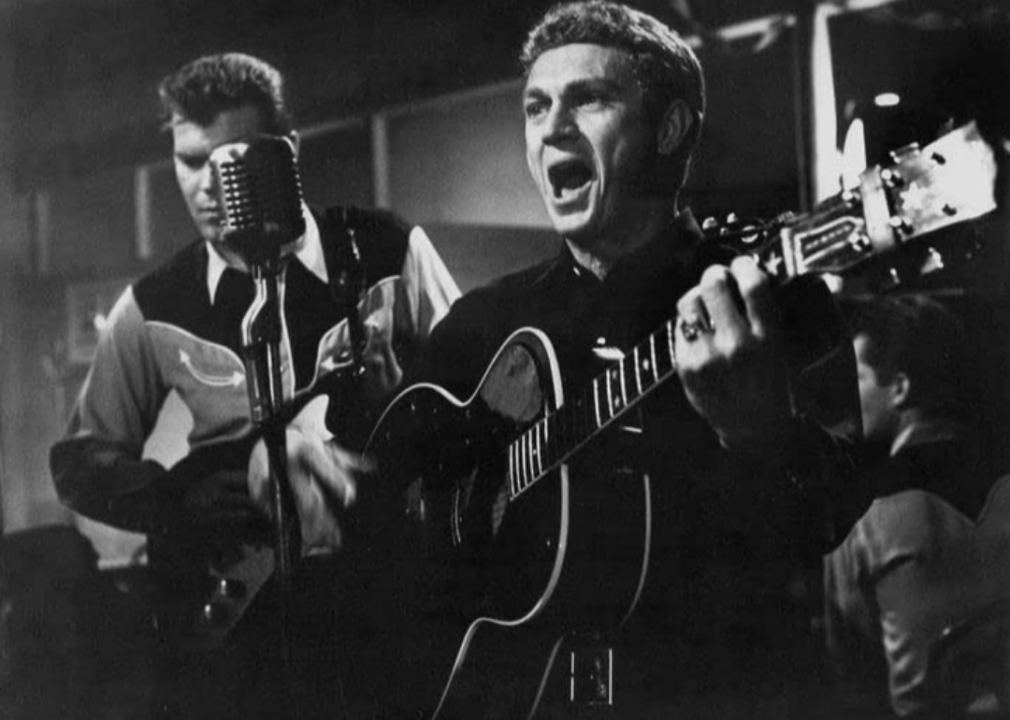
Park Place Production
1966: Music with Glen Campbell
In the 1965 movie “Baby The Rain Must Fall,” McQueen portrayed a fledgling rockabilly singer. His co-star was Lee Remick. In one scene where McQueen’s character “Henry” is singing in a bar, an uncredited Glen Campbell is accompanying him.
1965’s “The Cincinnati Kid” cast McQueen along with entertainers such as Cab Calloway and Ann-Margaret. McQueen played a traveling cardsharp.
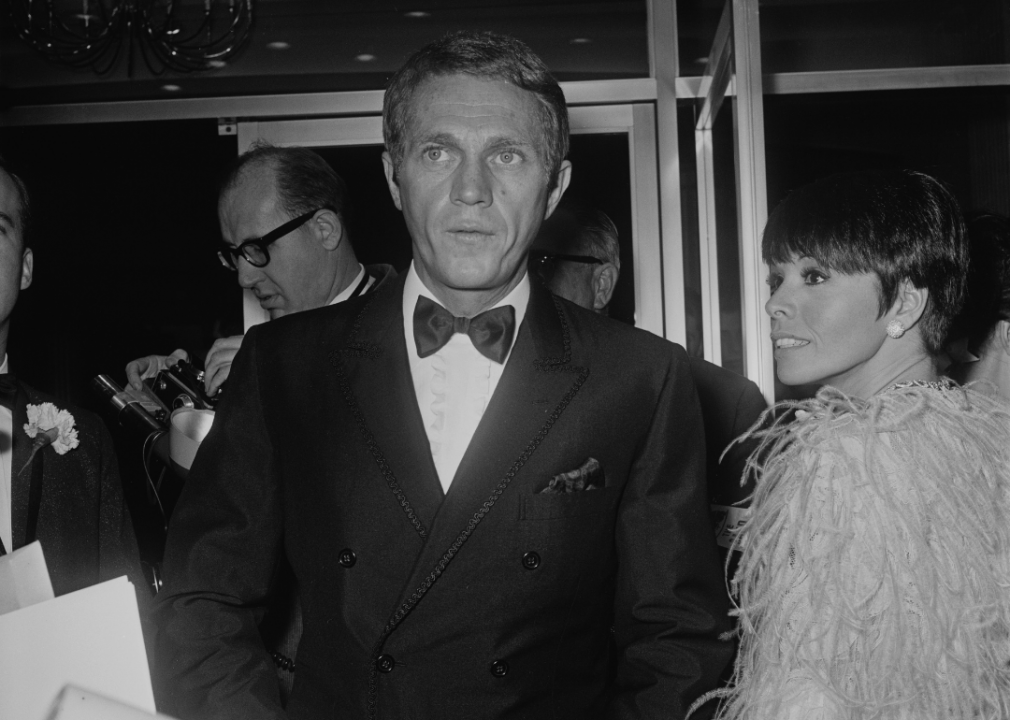
Graphic House // Getty Images
1966: Academy Award nomination
McQueen earned an Oscar nominee for Best Actor for his role as a rebellious naval engineer Jake Holman in the military drama “The Sand Pebbles.” The screenplay was adapted from a 1962 Richard McKenna novel of the same name. McQueen starred alongside Richard Attenborough, Candice Bergen, Richard Crenna, and others.
You may also like: 30 secret celebrity weddings
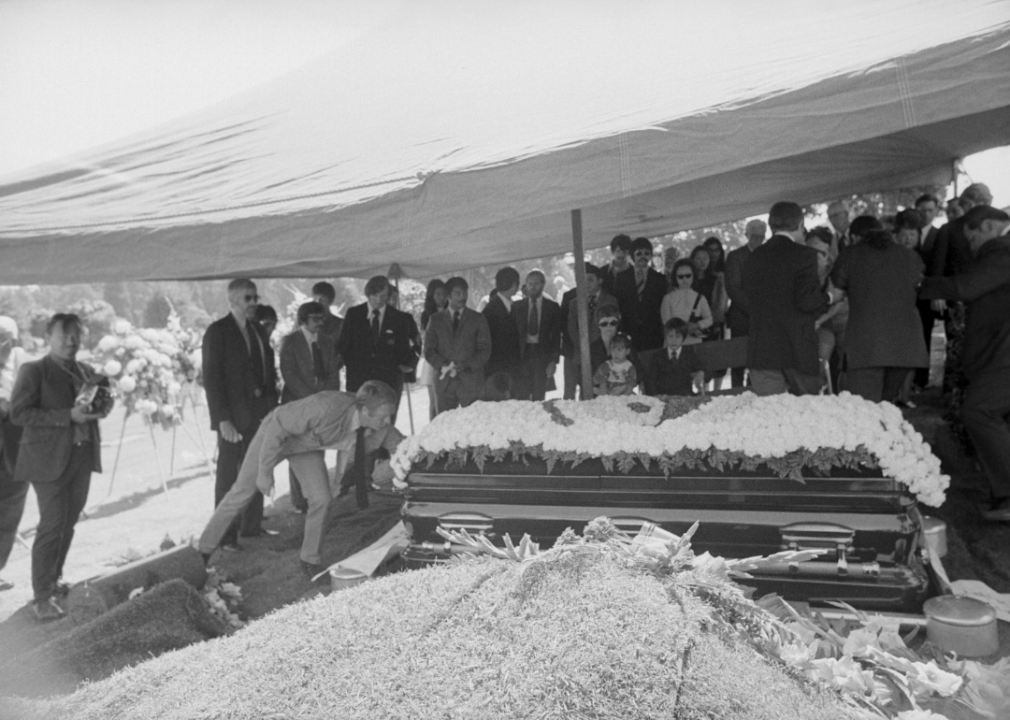
Bettmann // Getty Images
1966: Martial arts with Bruce Lee
Bruce Lee in 1966 moved his family from Seattle, Washington, to Los Angeles, taking a starring role in the superhero series “The Green Hornet.” Lee also opened a martial arts school in L.A., teaching many celebrities the craft, including Steve McQueen. The two men had a storied friendship that lasted for years; when Lee died in 1973, two funerals were held. McQueen, who notoriously hated funerals (and had avoided Sharon Tate’s), flew to Seattle to attend the second funeral.
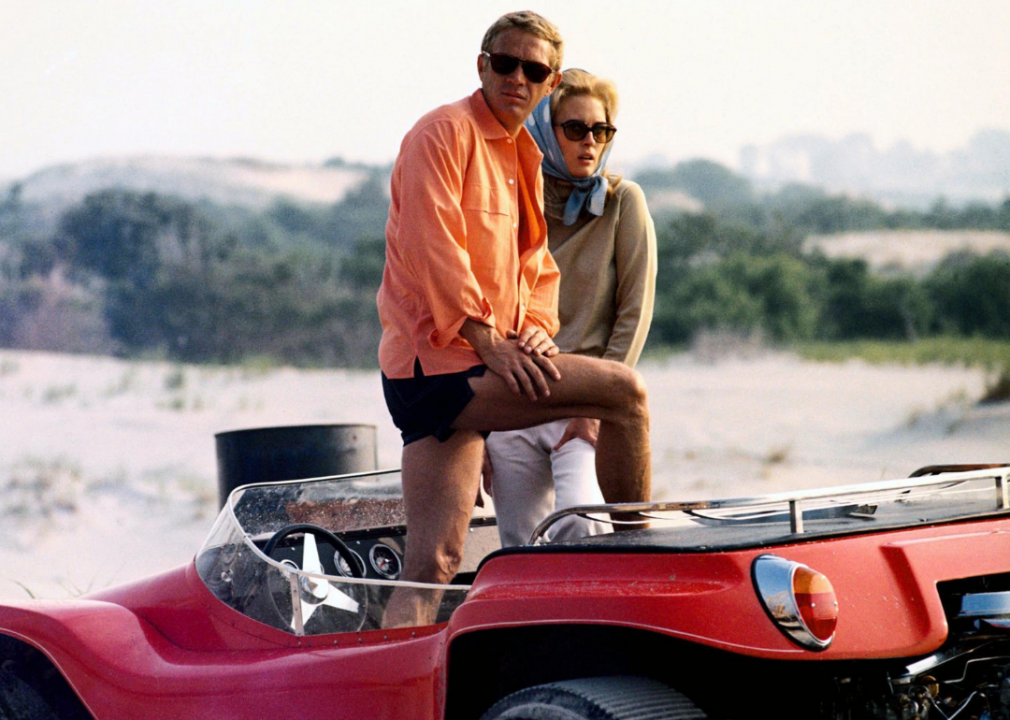
Silver Screen Collection // Getty Images
1968: ‘The Thomas Crown Affair’
In the 1968 thriller “The Thomas Crown Affair,” McQueen starred with Faye Dunaway in her follow-up film to her debut “Bonnie & Clyde.” The movie was filmed in Boston and was one of the first to generously employ split or quadruple screens.
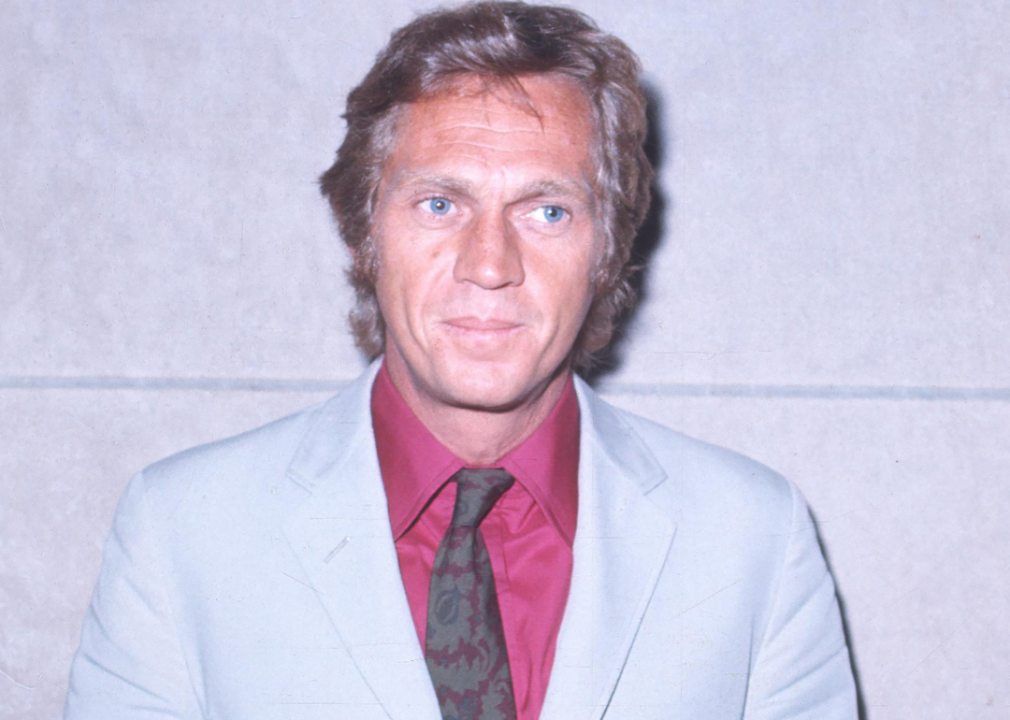
Ron Galella Collection // Getty Images
1969: A narrow escape from the Manson murders
McQueen met Jay Sebring and Sharon Tate while hanging out at the Whisky a Go Go in Hollywood in the 1960s. On the night Tate and Sebring were murdered by Charles Manson’s followers, McQueen had plans to meet them for dinner at Tate and Roman Polanski’s house but ended up being unable to go. Following the murders, McQueen began carrying a loaded gun on him at all times.
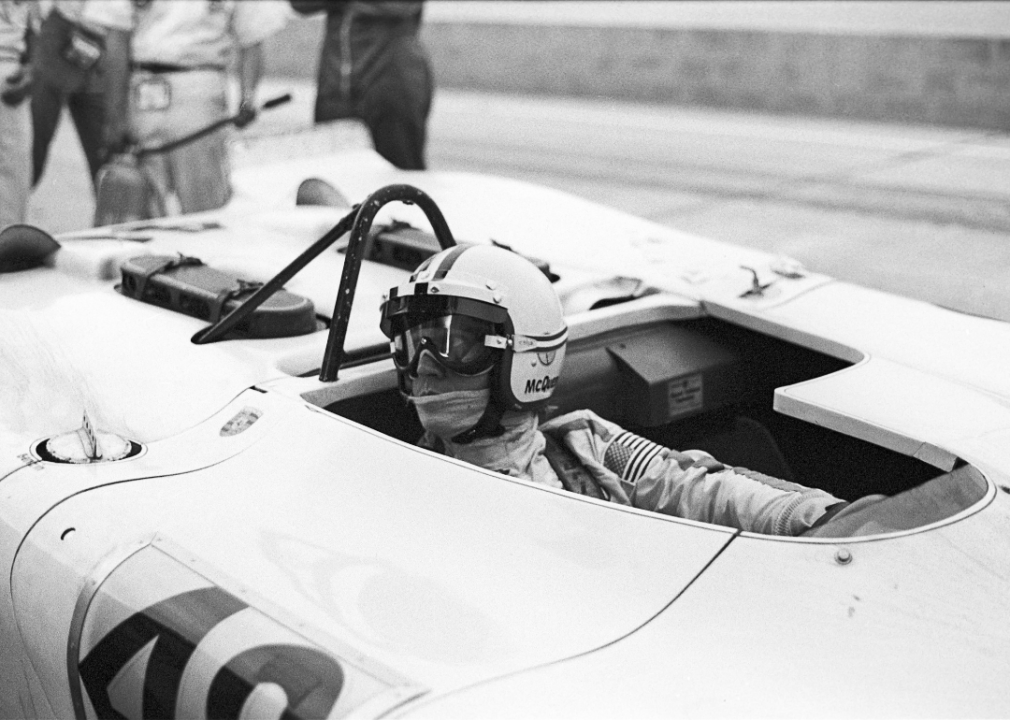
Bernard Cahier // Getty Images
1970: McQueen races in a cast
In the 1970 Twelve Hours of Sebring motorsport endurance race, McQueen drove with a cast on his left foot—he’d been in a motorcycle accident two weeks earlier. He competed in the three-liter class in a Porsche 908/02. The actor lost the overall title by a matter of seconds to Mario Andretti.
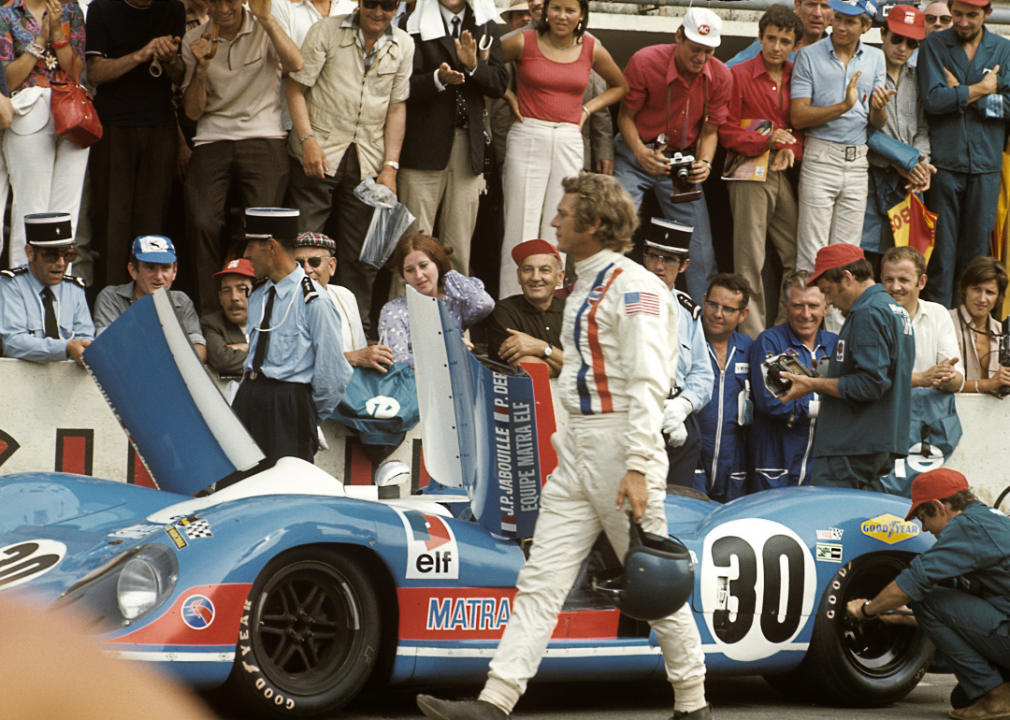
Bernard Cahier // Getty Images
1971: ‘Le Mans’
In 1971, McQueen starred in the poorly received auto-racing drama “Le Mans.” Despite its lackluster reception, it features McQueen doing much of his own driving and stunts.
You may also like: 30 celebrities you might not know are Canadian
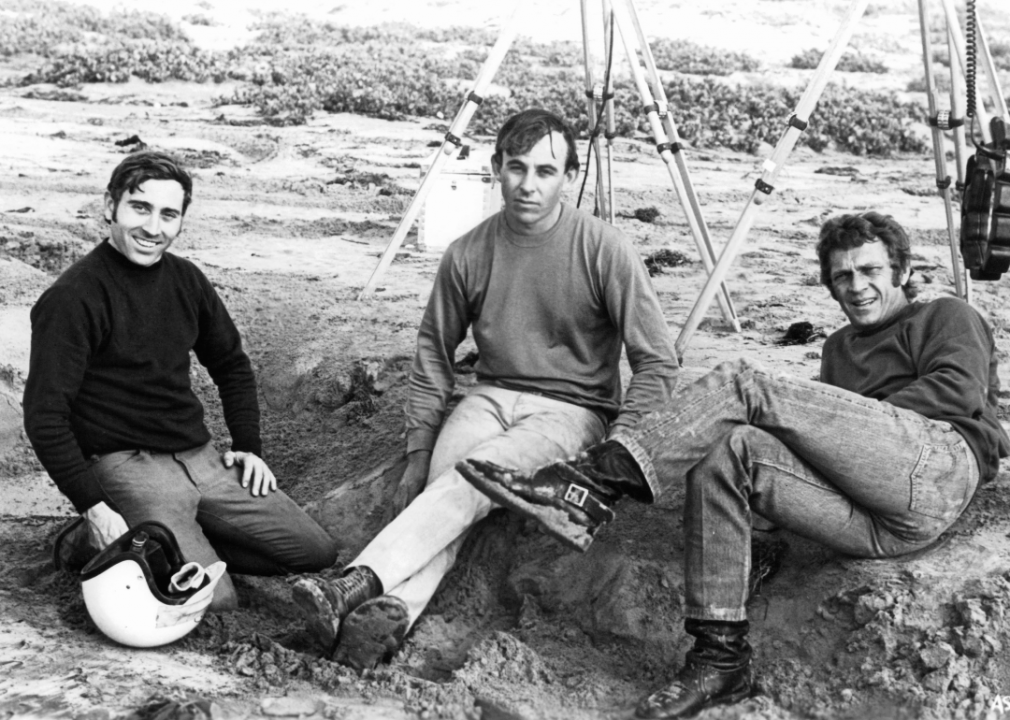
Monterey Media // Getty Images
1971: ‘On Any Sunday’
In 1971, McQueen’s production company funded the motorsports documentary “On Any Sunday.” McQueen was also present for significant changes in the industry, including compensation for a share of the box office receipts from their films.
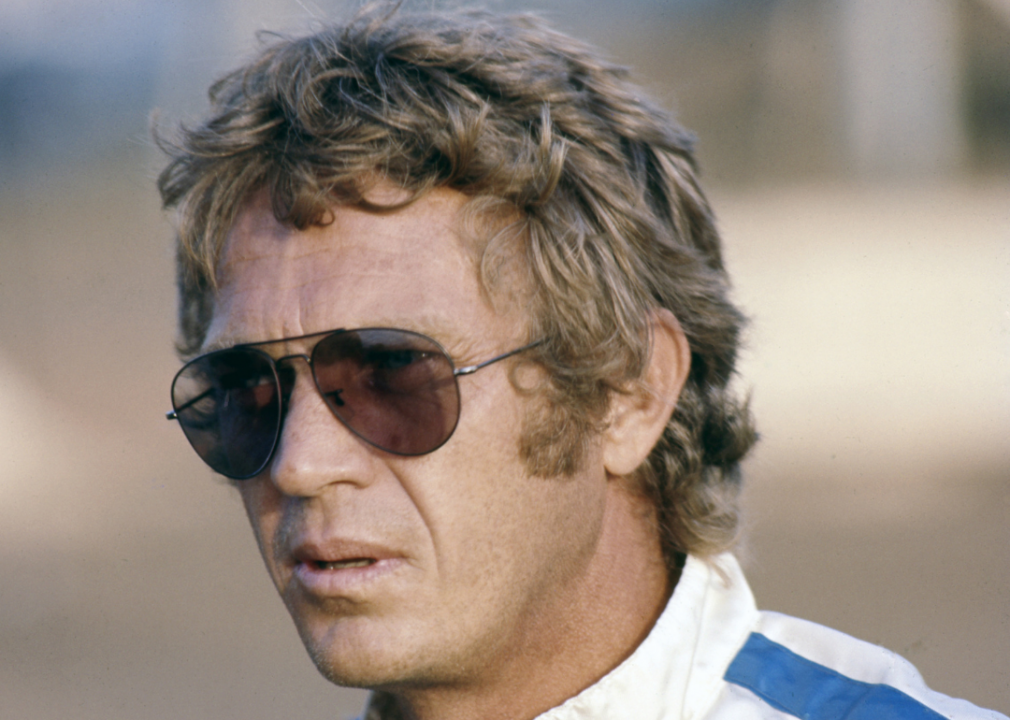
Silver Screen Collection // Getty Images
1971: Cover of Sports Illustrated
Also in 1971, McQueen appeared on the cover of Sports Illustrated magazine riding a Husqvarna dirt bike. In the colorful profile within, McQueen recounts biking through Hurricane Audrey en route to Florida in the late 1950s before a cycle tour of Cuba.
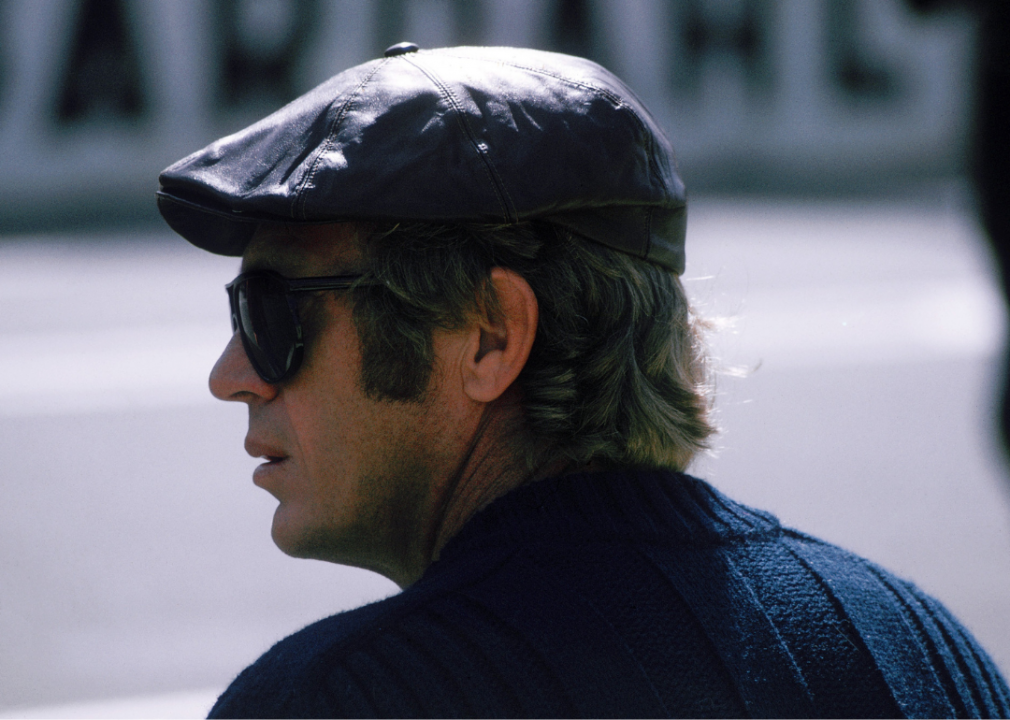
Anwar Hussein // Getty Images
1972: Arrested for drunken driving
McQueen was arrested for drunk driving in Alaska in 1972. The actor posted bail before heading out of town. Over his lifetime, there were many instances where the risk-taking driver stood on the verge of losing his license for a variety of moving violations.
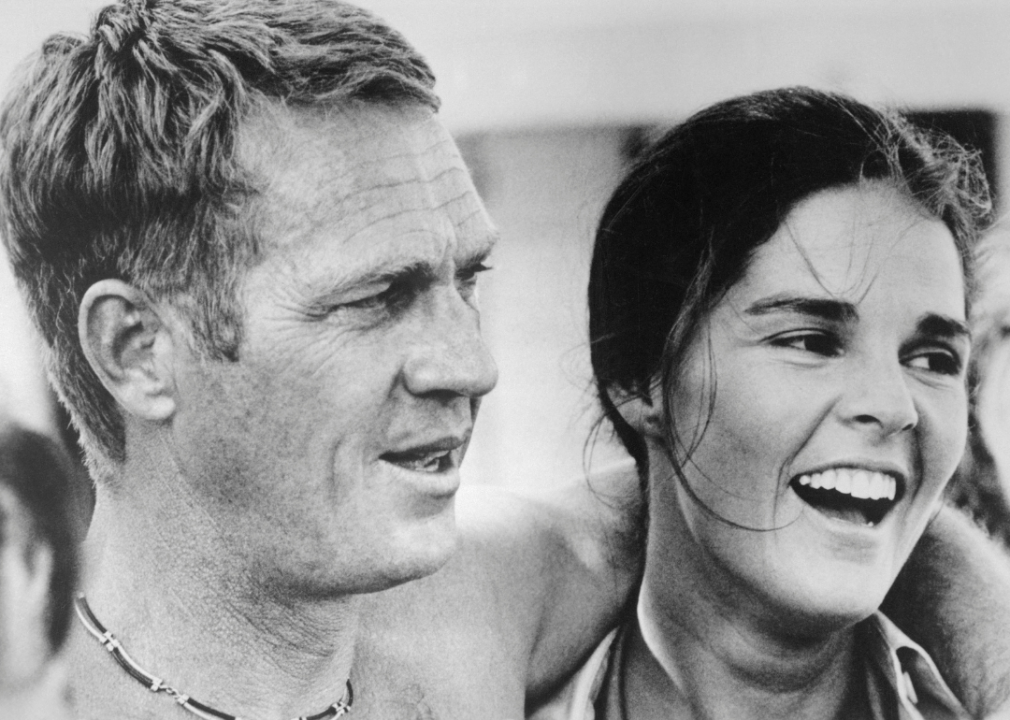
Bettmann // Getty Images
1973: Marriage to Ali MacGraw
In 1972’s caper flick “The Getaway,” McQueen was paired with Ali MacGraw. The two were married in 1973. Their marriage was tumultuous (to say the least)—McQueen was known to have kept a suite at the Beverly Wilshire in Los Angeles for various trysts, along with disappearing for days at a time to party with the local Hell’s Angels chapter. The couple divorced in 1978; MacGraw never remarried.
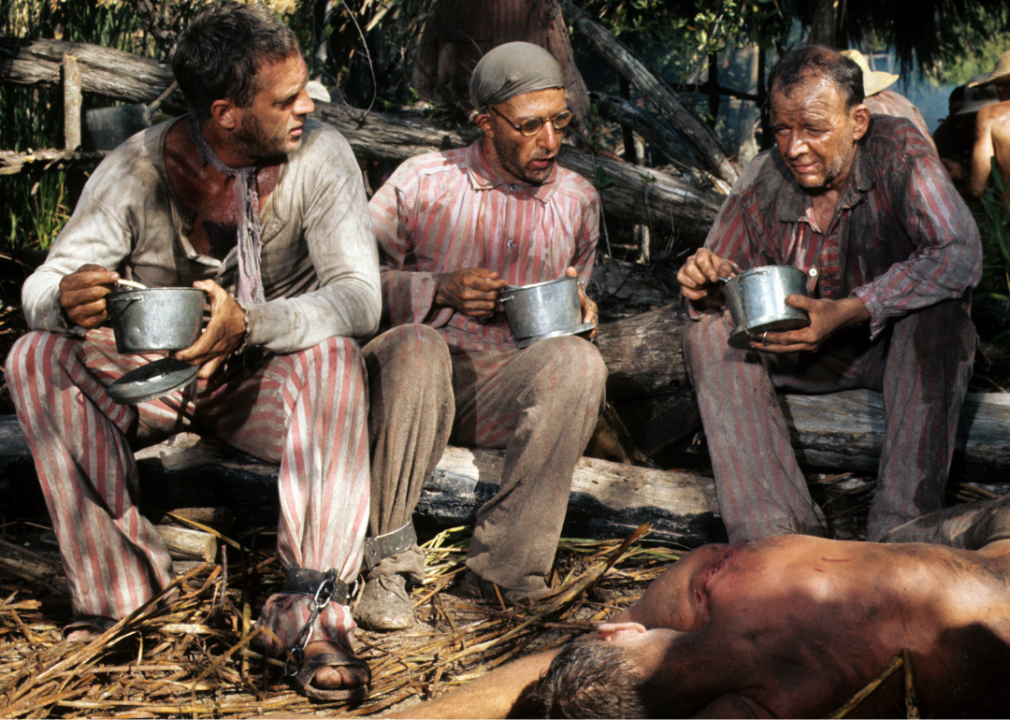
Anwar Hussein // Getty Images
McQueen makes it into a Stones song
In 1973, The Rolling Stones included McQueen in the risque lyrics to their song “Star Star,” off their album “Goats Head Soup.”
That same year, Steve McQueen and Dustin Hoffman shared top billing in the 1973 prison camp drama “Papillon.” The screenplay was co-authored by formerly blacklisted screenwriter Dalton Trumbo.
You may also like: The Rat Pack, Brat Pack, and 20 other celebrity friend groups
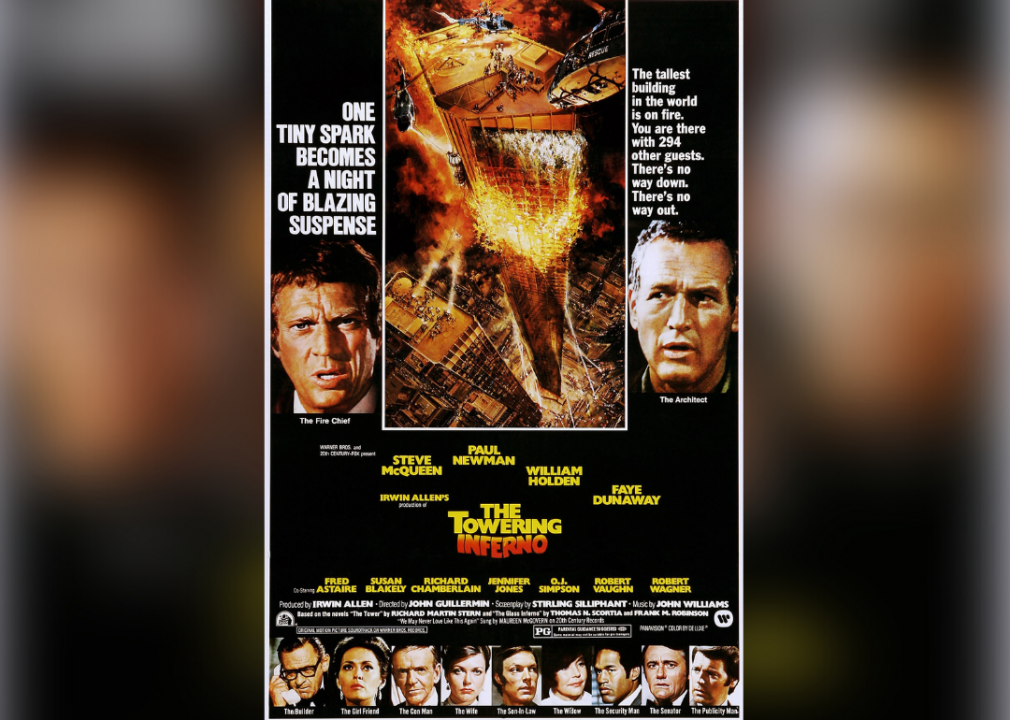
LMPC // Getty Images
1974: Highest-paid movie star in the world
In 1974, McQueen joined a galaxy of Hollywood stars in the first blockbuster feature, “The Towering Inferno.” When producer Irwin Allen recruited McQueen and Paul Newman for the film, McQueen’s management stipulated that neither celebrity would get higher billing than the other. All marketing materials for the film, therefore (on posters and the like) present McQueen’s name first, with Newman’s never appearing higher than a half-letter above McQueen’s.
By that year, McQueen was the highest-paid movie actor in the world.
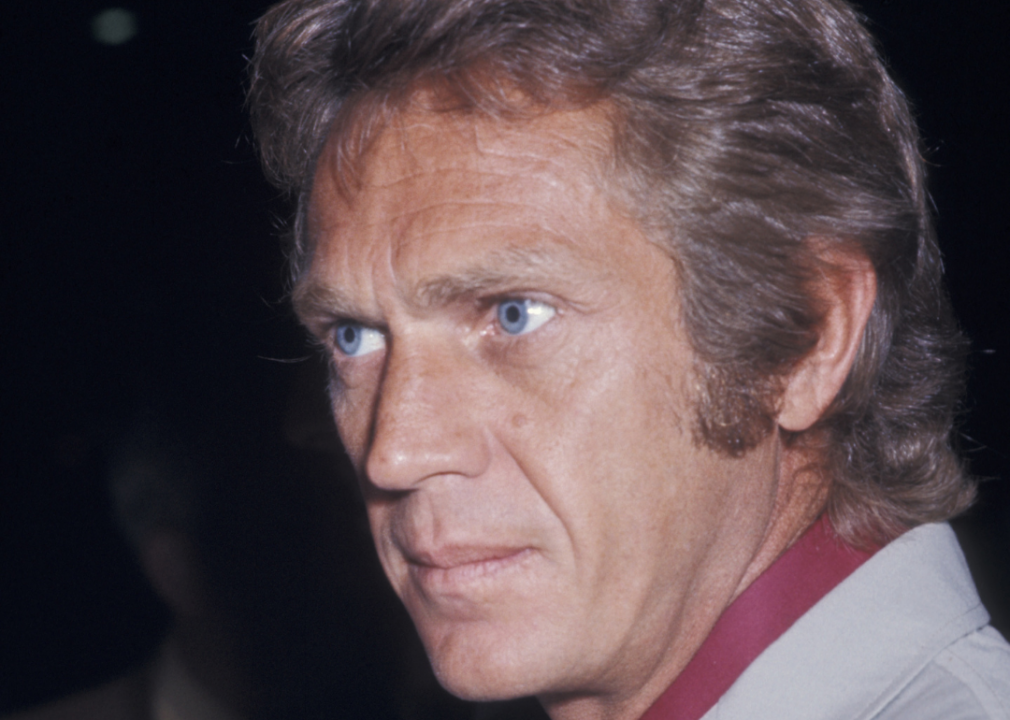
Ron Galella // Getty Images
1977: A near miss for ‘Close Encounters’
McQueen was Steven Spielberg’s first choice for the character of Roy Neary in the 1977 film “Close Encounters of the Third Kind.” McQueen turned the part down, telling the director he was unable to cry on cue.
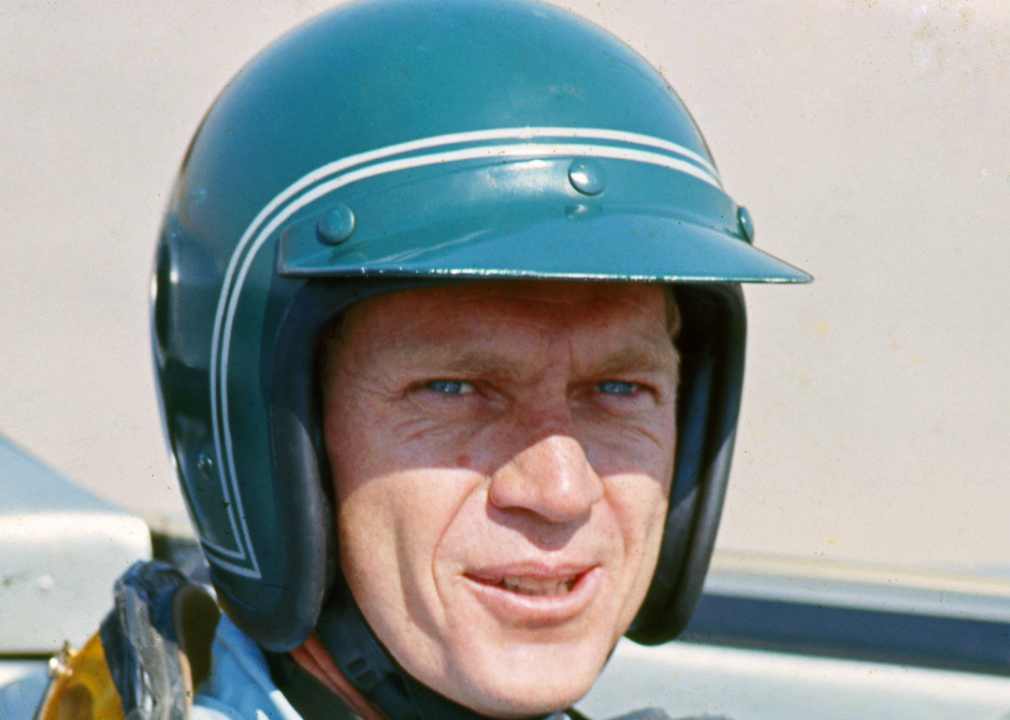
Silver Screen Collection // Getty Images
1978: Off-Road Motorsports Hall of Fame
McQueen was inducted into the Off-Road Motorsports Hall of Fame in 1978. The distinction honors his long-time participation in off-road motorsports and his involvement with helping to get the very first, organized off-road competitions off the ground. Among the vehicles he raced were various motorcycles, Chevy pickups, and the infamous “Baja Boot.”
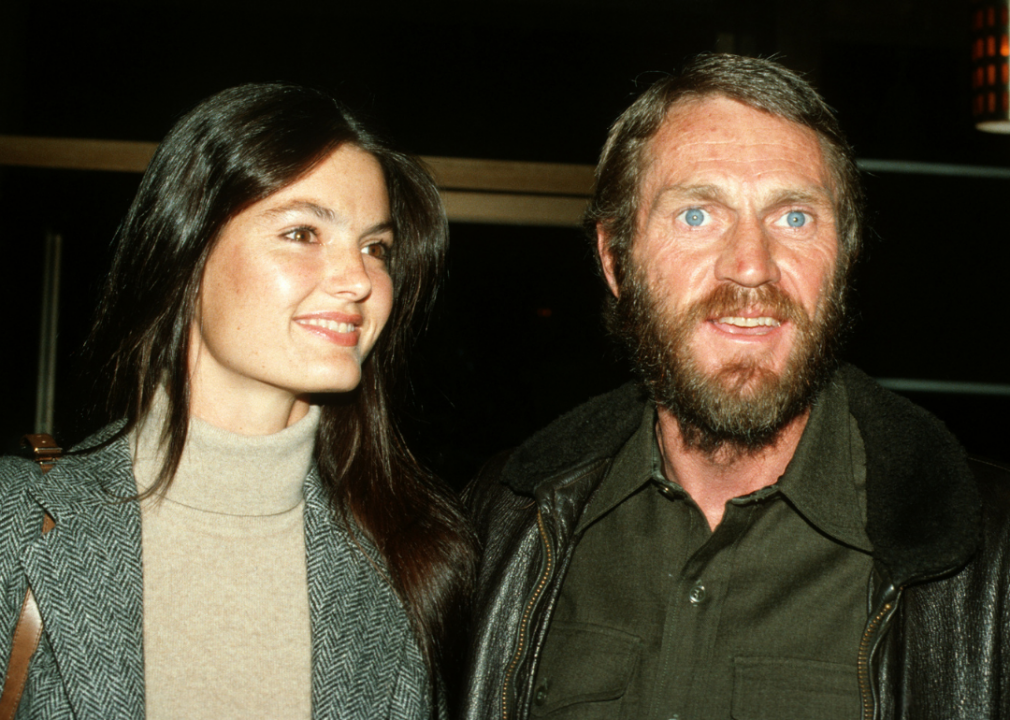
Ron Galella // Getty Images
1980: Marriage to Barbara Minty
Former fashion model Barbara Minty met McQueen in July of 1977 after the actor saw her in an advertisement. McQueen had his agent set up a meeting with her; the two were married on Jan. 16, 1980.
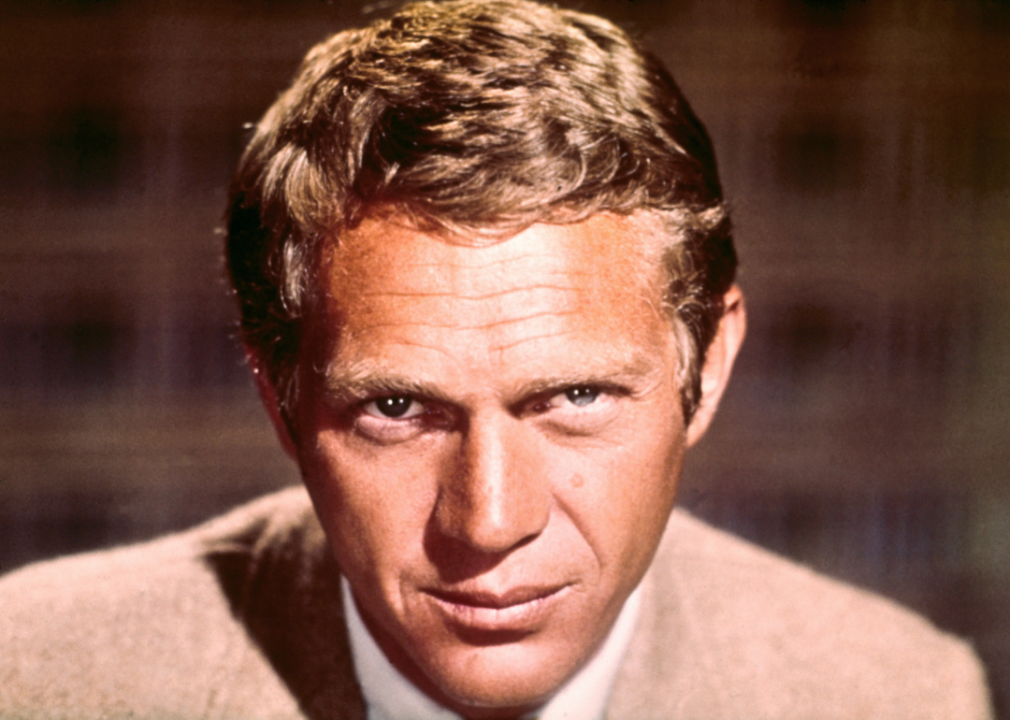
Bettmann // Getty Images
1980: An iconic life cut short
McQueen’s mesothelioma diagnosis in 1979 was likely due to his exposure to asbestos. In the Marines, he repaired asbestos insulation; while racing, he wore asbestos-lined suits. He was told the cancer was untreatable. Seeking a cure, McQueen headed to Mexico for experimental treatments that ultimately didn’t work. He was 50 when he died on Nov. 7, 1980. The ashes of the King of Cool were scattered over the Pacific Ocean.
You may also like: 50 dogs as incredible as the celebrities who own them


